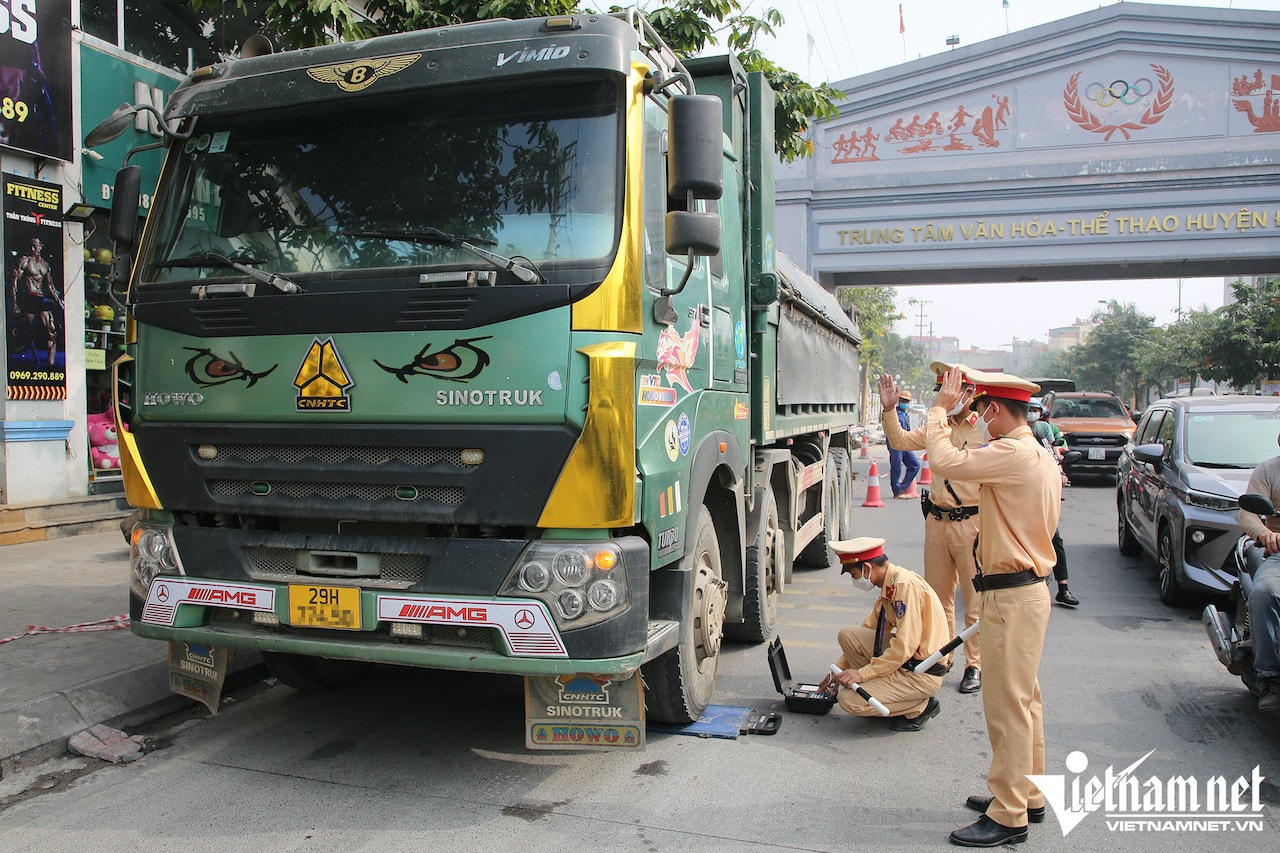In the draft resolution regulating fines for a number of administrative violations in the field of road traffic, Hanoi City proposed increasing the maximum fine for 5 violations to 120 million VND.

The Hanoi People's Committee is seeking opinions on a draft Resolution regulating fines for a number of administrative violations in the field of road traffic.
Accordingly, the draft proposes to increase the fine by 1.5-2 times compared to Decree 168/2024, including violations with fines of up to 120 million VND.
Expressing his opinion on this proposal, Mr. Tran Van Manh (a truck driver in Hanoi) said that he is the main breadwinner in his family and since Decree 168 took effect, he has been very careful when traveling on the road. Mr. Manh believes that Decree 168 with its fines is considered to be a sufficient deterrent.
“Administrative fines are necessary to help raise awareness among traffic participants. However, if the fines continue to increase by 1.5-2 times as proposed by Hanoi, it will put a lot of pressure on us drivers,” Mr. Manh worried.
Mr. Manh hopes that in addition to increasing the fine, it is also necessary to ensure fairness, and that there will be no unfair fines or negative consequences during the handling process. At the same time, this driver believes that instead of increasing the fine, Hanoi needs to focus on improving traffic infrastructure and installing more automatic surveillance camera systems to limit violations from both sides.
Meanwhile, Mr. Nguyen Van Thanh, former Chairman of the Vietnam Automobile Transport Association, fully supports the increase in traffic violation fines that Hanoi recently proposed.
Mr. Thanh said that Hanoi's proposal has a legal basis, based on the 2024 Capital Law and the current complicated traffic situation in Hanoi.
“In addition, Hanoi is also the face of the whole country. After 1 month of applying Decree 168, people's traffic awareness has clearly changed. However, there are still actions and individuals who deliberately violate traffic on the streets. Therefore, increasing the penalty level is necessary. I agree that Hanoi should have a stronger resolution,” Mr. Thanh expressed.
However, Mr. Thanh is concerned about Hanoi's decision to increase the fines for 107 violations from 1.5 to 2 times.
“I think we should consider and not impose widespread penalties. Hanoi should choose special violations such as intentionally extending the side of the container, overloading, speeding, drinking alcohol in violation of alcohol concentration... to increase the penalty level. Therefore, it may not be 107 acts but about 50 acts that need to be increased in penalty level. The application of increased penalty level must be applied to very dangerous acts, with potential for accidents, showing intentional violation of the law, then it is necessary to strictly handle them, even if it is necessary to bring them to criminal prosecution,” Mr. Thanh expressed.
Is the fine of 120 million VND too high?
Notably, in the draft resolution, Hanoi proposed to increase the maximum fine for 5 traffic violations to 120 million VND. The drafting agency explained that this is a group of violations that negatively affect infrastructure.
Including the act of handing over the vehicle, allowing an employee, representative to drive or the vehicle owner to directly drive the vehicle, where the total weight (total mass) of the vehicle or axle load (including goods loaded on the vehicle, people carried on the vehicle) exceeds the permitted load of the road by 20 - 50%.
This fine is considered by public opinion to be too high compared to people's income.
However, former Chairman of the Vietnam Automobile Transport Association Nguyen Van Thanh expressed his agreement with this proposal. Mr. Thanh even said that this behavior should be treated as a criminal offense.
“In Thailand, this behavior will be classified as intentional destruction of national property and will be prosecuted. This measure has been applied for decades and is not simply a violation of traffic safety. Because overloading is a driver destroying the road, for personal gain destroying the entire road/road. While repairing damaged roads costs up to billions of dong…”, Mr. Thanh emphasized.
According to Mr. Thanh, there are opinions that Vietnam has a surplus of vehicles, but in reality, vehicles are always overloaded. Obviously, overloading is only possible when there is a shortage of vehicles. Why does this situation still occur when there is a surplus of vehicles?
“Overloading is a potential cause of terrible traffic accidents. Because overloaded vehicles will affect the braking system and cause other technical problems. However, in reality, overloaded vehicles still occur, which shows intentional violations of the law and destruction of national property. Therefore, I agree with the proposal to impose heavy fines on both vehicle owners and drivers. If the driver is also the vehicle owner, both parties will be fined,” Mr. Thanh said.
TB (according to Vietnamnet)